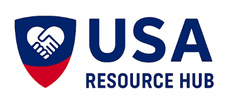Legal problems don’t wait for financial stability. Whether it’s a landlord dispute, custody issue, debt collection, or domestic violence case, low-income families often face legal challenges without the resources to hire an attorney. Fortunately, there are free legal aid programs across the United States designed to help people navigate the legal system without the burden of high fees.
These programs offer support for civil legal matters and are funded by government agencies, nonprofit organizations, and law school initiatives. If you’re facing a legal issue and can’t afford representation, here’s how to find help and what to expect.
What Legal Aid Covers
Free legal aid programs focus on civil law, which includes:
- Family law: divorce, custody, child support, guardianship
- Housing law: eviction, foreclosure, landlord-tenant disputes
- Consumer law: debt collection, bankruptcy, identity theft
- Employment law: wage disputes, discrimination, wrongful termination
- Immigration: asylum, residency, citizenship applications
- Public benefits: denial of SNAP, Medicaid, Social Security
- Domestic violence: protective orders, safety planning
- Elder law: wills, powers of attorney, elder abuse
- Disability rights: access to services, discrimination claims
Each program has its own eligibility criteria and service limits, but most prioritize urgent cases and vulnerable populations.
Where to Find Free Legal Help
1. Legal Services Corporation (LSC) LSC is a federally funded nonprofit that supports over 130 independent legal aid organizations nationwide. These groups provide free legal assistance to low-income individuals and families. You can search for local providers by ZIP code on the LSC website.
2. LawHelp.org This platform helps users find free legal aid in their state and offers self-help resources, legal forms, and guides. It’s especially useful for understanding your rights and preparing documents for housing, family, and consumer issues.
3. American Bar Association (ABA) Free Legal Help The ABA connects low-income individuals with volunteer lawyers through its Free Legal Answers program. You can submit a question online and receive a response from a licensed attorney. This service is available in most states and covers civil legal matters only.
4. State and Local Legal Aid Offices Many states have their own legal aid networks, often affiliated with LSC or local bar associations. These offices may offer walk-in clinics, phone consultations, or virtual appointments. Search “[your state] legal aid” to find nearby services.
5. Law School Clinics Some universities operate legal clinics where law students, supervised by licensed attorneys, provide free services to the public. These clinics often focus on housing, immigration, family law, or veterans’ issues. Availability may be limited by semester schedules.
Who Qualifies for Legal Aid
Eligibility typically depends on:
- Household income (usually below 125–200 percent of the federal poverty level)
- Type of legal issue (civil cases only)
- Residency or citizenship status (some programs serve all residents, others require documentation)
- Urgency or vulnerability (priority may be given to seniors, veterans, survivors of abuse, or people with disabilities)
You’ll likely need to provide proof of income, identification, and documentation related to your legal issue. Intake processes vary, but most programs offer online screening tools or phone consultations.
What to Expect
Legal aid programs may offer:
- Full representation in court
- Limited-scope assistance (help with forms or advice)
- Mediation or negotiation support
- Referrals to other agencies or pro bono attorneys
- Self-help resources and workshops
While demand is high and waitlists are common, many programs prioritize emergency cases and offer immediate help for time-sensitive issues like eviction or domestic violence.
Tips for Getting Help
- Apply early—don’t wait until your court date
- Be honest and thorough during intake
- Keep all documents organized and ready to share
- Follow up if you don’t hear back within a few days
- Ask about alternative services if you’re not eligible
If you’re denied assistance, request a written explanation and explore other providers or online legal tools.
Legal aid programs exist to ensure that justice isn’t reserved for those who can afford it. If you’re facing a legal challenge and don’t have the means to hire an attorney, these programs can offer guidance, representation, and peace of mind.


Leave a Reply